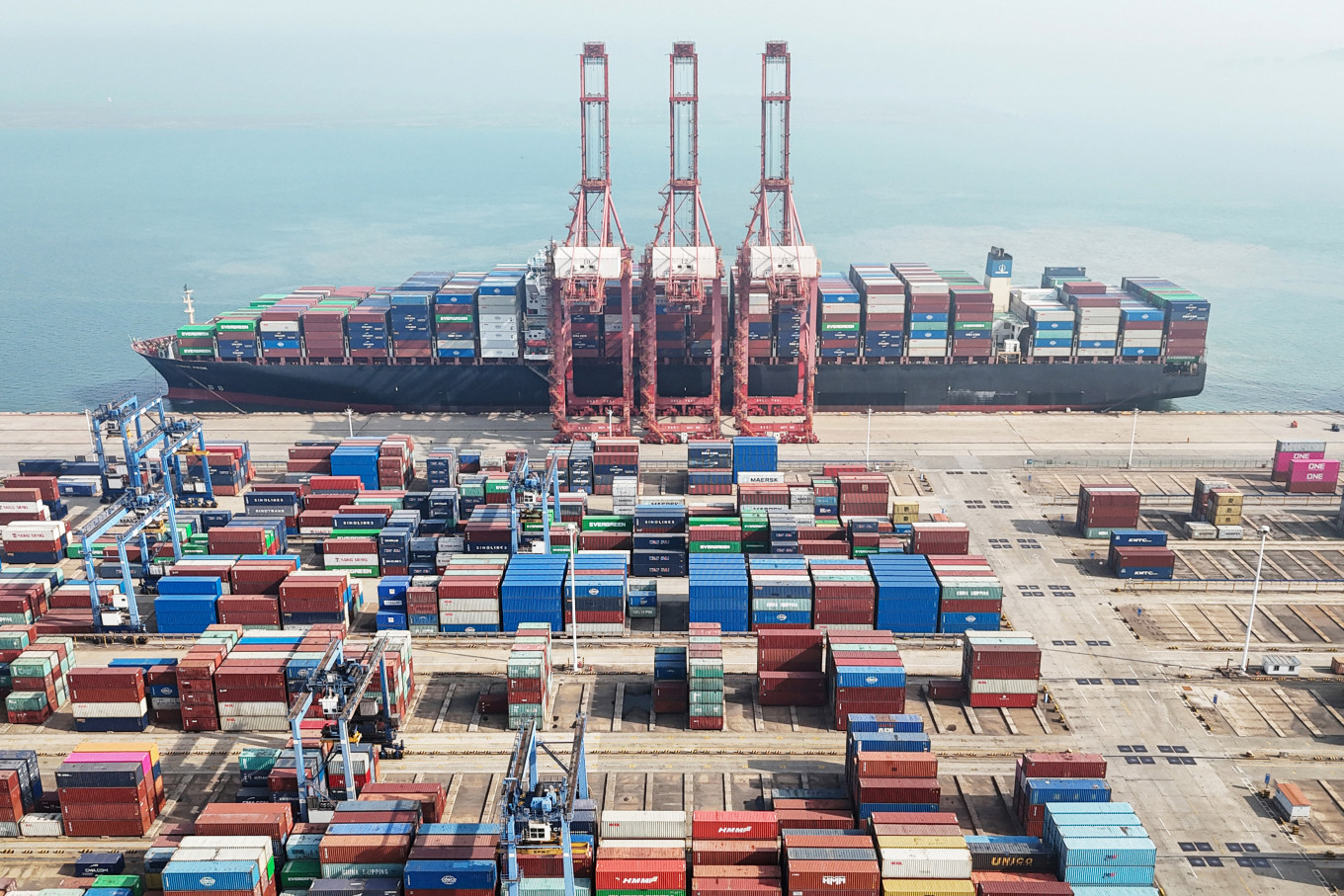Popular Reads
Top Results
Can't find what you're looking for?
View all search resultsPopular Reads
Top Results
Can't find what you're looking for?
View all search resultsChina's imports tumble as demand skids, trade war heats up
The first two months of the year saw the opening salvo of a renewed US-China trade war, with US President Donald Trump imposing an extra 10 percent levy on Chinese goods, arguing Beijing had not done enough to stem the flow of the deadly opioid fentanyl.
Change text size
Gift Premium Articles
to Anyone
C
hina's imports unexpectedly shrank over the January-February period, while exports lost momentum, as escalating tariff pressures from the United States cast a shadow over the recovery in the world's second-largest economy.
The first two months of the year saw the opening salvo of a renewed US-China trade war, with US President Donald Trump imposing an extra 10 percent levy on Chinese goods, arguing Beijing had not done enough to stem the flow of the deadly opioid fentanyl.
Workers in China also downed tools for the Lunar New Year festival and Trump's first February 4 tariff deadline hit exporters who had been front-loading shipments to get ahead of the curbs.
Analysts say the collapse in imports signals Beijing has begun scaling back purchases of key commodities, as it prepares for four more years of gruelling trade tensions with the second Trump administration.
"The drop in imports is seen across grains, iron ore and crude oil, and could be related to China's own consideration of building strategic reserves," said Xu Tianchen, senior economist at the Economist Intelligence Unit.
"China may have imported too many of them in 2024, and needs to scale back the purchase volume," he added. "This is certainly true for iron ore, as steel production clearly exceeds what is needed by the economy."
Export momentum had up until now been a bright spot for an economy otherwise struggling with weak household and business confidence caused by a prolonged property market debt crisis.
China's imports fell 8.4 percent year-on-year, customs data showed on Friday, missing 1 percent growth forecast in a Reuters poll of economists and a 1 percent uptick in December.
Exports from the largest manufacturing nation rose just 2.3 percent over the same period, missing expectations for a 5 percent increase and slowing from December's 10.7 percent gain.
"(Slowing exports) may be partly due to the slowdown of export front loading, which was strong late last year to avoid the trade war," said Zhang Zhiwei, chief economist at Pinpoint Asset Management.
"The sharp decline of imports may reflect both weak domestic demand as well as a decline in imports for processing trade," he added.
"The damage of higher US tariffs on China's goods will likely show up next month."











